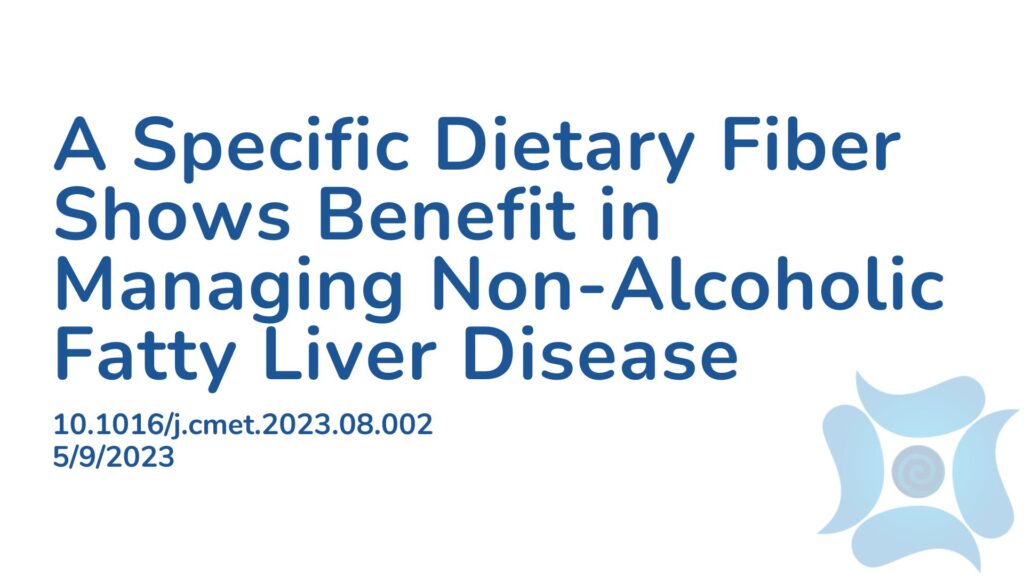Summary:
Non-alcoholic fatty liver disease (NAFLD) is usually seen in people who are overweight or obese and is a term for a variety of conditions caused by a buildup of fat in the liver. NAFLD can lead to liver damage, including cirrhosis, so ensuring it does not progress past early-stage is crucial. In this study, the authors conducted a 4-month randomized placebo-controlled clinical trial involving individuals with NAFLD. The study aimed to explore the potential of resistant starch as a dietary supplement which can be used to treat NAFLD, via supporting the gut microbiota. The resistant starch intervention group experienced over a 9% reduction in markers of fat storage in the liver. Additionally, the authors observed beneficial associations between the resistant starch and an increase in specific gut microbial species which also positively impacted liver health. The study suggested that dietary supplementation with resistant starch may offer a promising approach for managing NAFLD by modulating the gut microbiota.
Abstract:
Non-alcoholic fatty liver disease (NAFLD) is a hepatic manifestation of metabolic dysfunction for which effective interventions are lacking. To investigate the effects of resistant starch (RS) as a microbiota-directed dietary supplement for NAFLD treatment, we coupled a 4-month randomized placebo-controlled clinical trial in individuals with NAFLD (ChiCTR-IOR-15007519) with metagenomics and metabolomics analysis. Relative to the control (n = 97), the RS intervention (n = 99) resulted in a 9.08% absolute reduction of intrahepatic triglyceride content (IHTC), which was 5.89% after adjusting for weight loss. Serum branched-chain amino acids (BCAAs) and gut microbial species, in particular Bacteroides stercoris, significantly correlated with IHTC and liver enzymes and were reduced by RS. Multi-omics integrative analyses revealed the interplay among gut microbiota changes, BCAA availability, and hepatic steatosis, with causality supported by fecal microbiota transplantation and monocolonization in mice. Thus, RS dietary supplementation might be a strategy for managing NAFLD by altering gut microbiota composition and functionality.
Article Publication Date: 5/9/2023
DOI: 10.1016/j.cmet.2023.08.002




